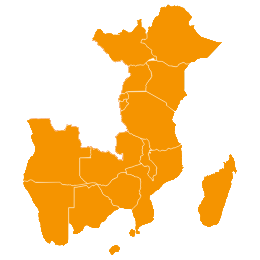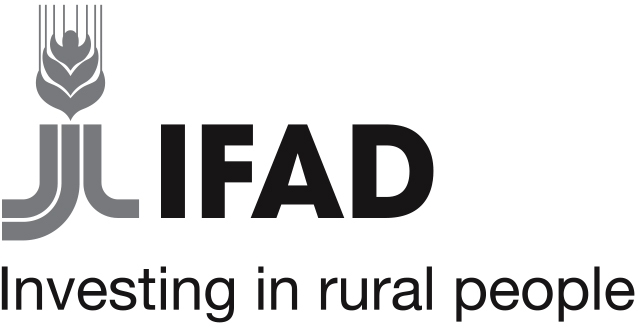Culinary Demonstration Units
"I am very happy now because before I did not know about all the different nutrients of the various products I was using to cook for my family."
Cristina Serati, farmer of the Wapaja Hiliyale Farmer Field SchoolBACKGROUND
Lack of knowledge about the nutritional values of food is the main cause of malnutrition of some farmers' families in Mozambique. With the help of government extension services and Culinary Demonstration Units, farmers are now able to prepare better food for their families.
WHAT’S INVOLVED
Training on nutrition
By training the farmers on nutritional value of food, they learn how to diversify their diet and prepare more nutritious food for their families.
Culinary Demonstration Units
Farmers are provided with a space and the right tools to learn how to make recipes that they can easily replicate at home, by using their own produce.
EXPLORE THIS SOLUTION
The Culinary Demonstration Units can offer
- Training modules to teach farmers how to prepare nutritious food; and
- A sustainable way to tackle malnutrition

Countries involved
Mozambique
Project partners
IFAD, Government of Mozambique, Direção Nacional de Extensão Agrária (DNEA), Serviços Provinciais de Extensão Agrária (SPER)
Project dates
2016 – 2018
Share this solution
Bookmark this solution
BookmarkShow Full Solution
Summary
Malnutrition is one of the major challenges in Mozambique’s rural farming communities. This challenge is often associated with poor dietary intake, poor hygiene and poor knowledge of food preservation. By training national public extension officers on nutrition and integrating nutrition education into Farmer Field School Groups (FFS), the Government of Mozambique is contributing to the improved nutritional status of the most vulnerable groups, such as children and pregnant women.
Challenge/Problem
In the Montepuez District of Cabo Delgado Province, Mozambique, the stunting rate is nine percentage points higher than the national average of 43 per cent. Peculiarly, food access is not an issue for the farming communities living in this province, due to the area’s high production yields. The main issue is that most of the population is not aware of the importance of nutrition, food preservation and diverse diets.
Solution
In order to address this challenge, IFAD and the Government of Mozambique, through the PRONEA Support Project (PSP), have taken steps to further integrate nutrition initiatives in farming communities in northern Mozambique.
Through the existing government agriculture extension services, extension officers are trained on how to prepare nutritious foods. Farmers receive the training through the extension workers and consequently share what they have learned with their fellow farmers and community members. This model guarantees sustainability beyond the project and the extension officers’ intervention, as the trained farmers become voluntary trainers themselves.
The training commences with the extension officers and the farmers jointly deciding which crops they would like to learn more about. Trainings focus on growing crops as well as cooking techniques.
Following the training on the crops, learning continues with Culinary Demonstration Units – practical models designed to engage members of the Farmer Field School Groups (FFS) about the preparation of nutritious foods for their families and improved preservation techniques to avoid seasonal food waste. The Culinary Demonstration Units are tents equipped with basic cooking utensils that farmers can use to demonstrate to each other how to cook nutritious foods based on the produce they have available.
By learning different recipes, farmers have also learned about dietary diversity. They know how to use local foods and produce, as well as the nutrient values that each product has.
Results
- Through the PRONEA Support Project (PSP), A total of 307 extension officers (including 282 at the district level) were trained on nutrition education and are currently providing continuous training in nutrition for farmers’ organizations.
- PSP reached a total of 5,158 beneficiaries, over 65.5 per cent of them women. As a result of trainings in Farmer Field School Groups (FFS), using cooking demonstration kits and educational materials about nutrition, FFS members have adopted and consumed improved recipes. The beneficiaries are improving their dietary intake in 23 of 42 PSP districts. Evidence from the field has confirmed the acceptability of these improved recipes: children are better nourished and communities are adopting all the best practices.
- Three food and nutrition fairs have been conducted, and six Culinary Demonstration Units are now in use. The fairs and Culinary Demonstration Units promoted the consumption and marketing of improved dishes prepared with locally available food, such as cassava cake, sweet potato juice, banana chips and enriched porridge for complementary feeding. The demonstrations also included diverse food-preservation techniques.
Lessons Learned/Potential for replication
The nutrition activities in the PRONEA Support Project started in mid-2016. Since then, the project has been able to contribute to nutrition mainstreaming within the public extension sector. There have been positive results in terms of meeting global targets and integrating nutrition activities in the extension sector through training and capacity-building activities at different levels (national, provincial and district).
With the introduction of nutrition education by the extension officers, the Government of Mozambique and IFAD are ensuring the continuity and sustainability of the learning and knowledge-sharing process among farmers, including those in different provinces.
Next Steps
Based on the success of the PRONEA Support Project, IFAD is planning to apply its model in other projects in Mozambique, as well as in the other regions beyond Africa. Moreover, it is envisioned that the training will continue in other districts of Mozambique.
Solution Video
Solution Image
Solution Document Downloads
Last update: 24/01/2019


